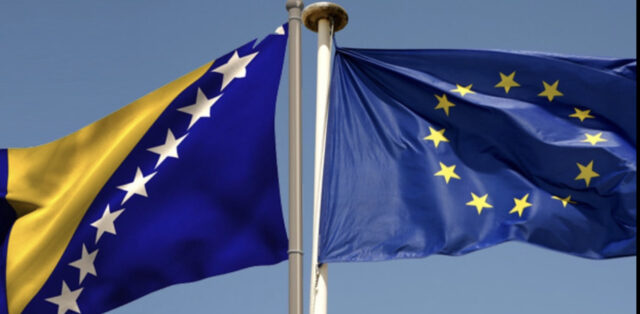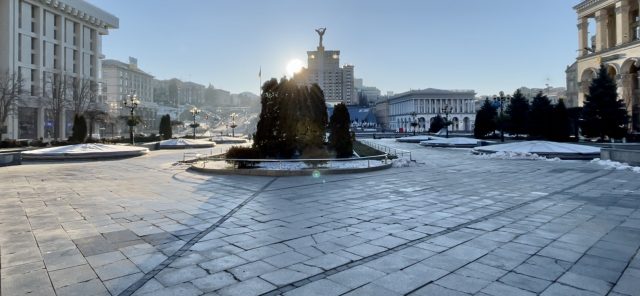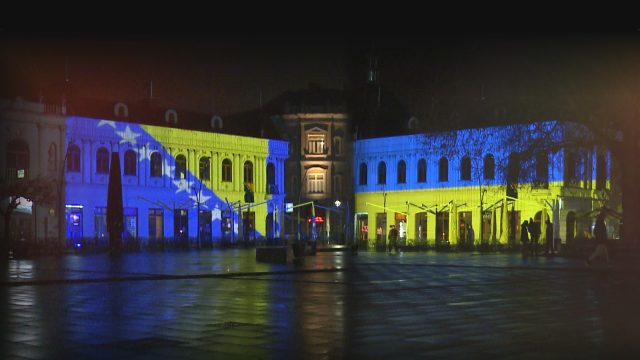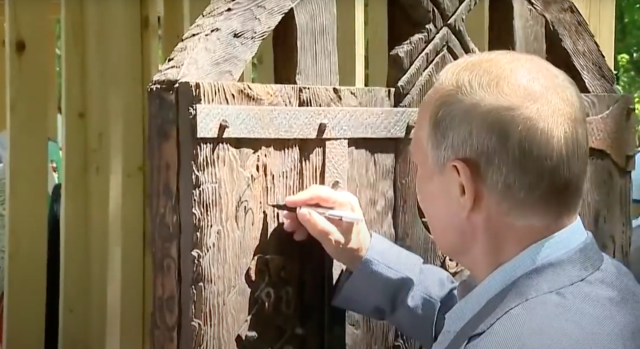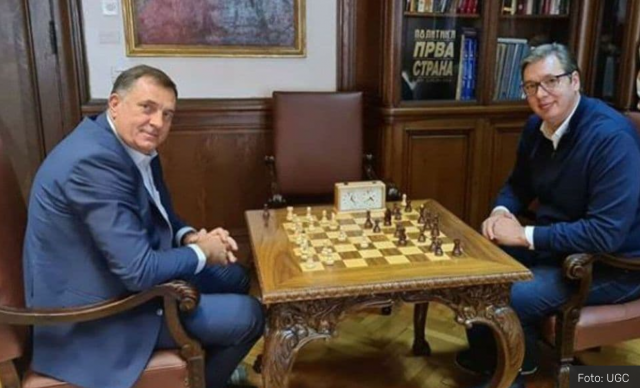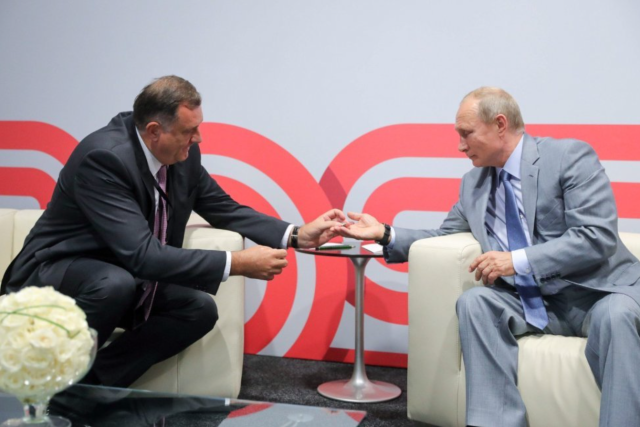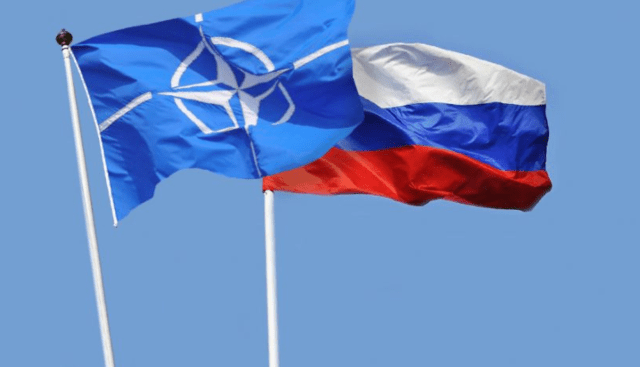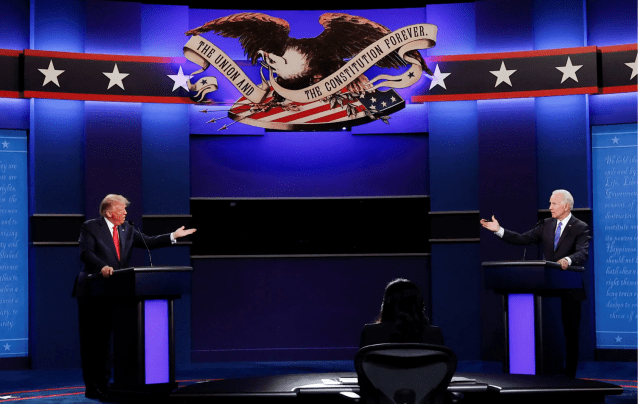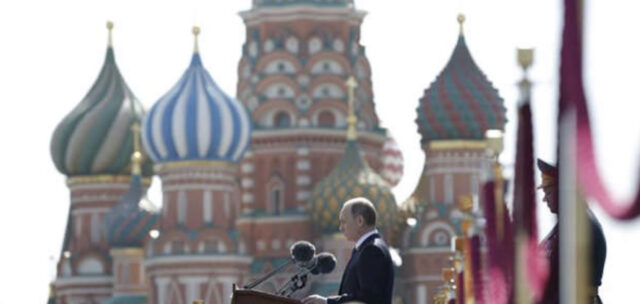Pregovori će biti, ako, možda,budu: Moldavija ispred BiH na evropskom putu!
U dramatičnom finišu, Evropska komisija ipak je odlučila dati preporuku da se Bosni i Hercegovini dodijeli pregovarački status o ulasku u Evropsku uniju.
Otvaranje pregovora s BiH počet će kad se određeni kriteriji ispune.
“Otvorili smo vrata širom, pozvali da BiH uđe, ali da bi se ušlo, rezultati se moraju vidjeti”, poručila je Ursula von der Leyen, predsjednica Evropske komisije.
Šta to znači?
Prije i iznad svega, sve dok Evropsko vijeće – tijelo koje daje finalno odobrenje ili odbijanje za bilo koju suštinsku odluku EU – ne kaže svoje, preporuka ne znači ništa.
Jer je moguće da tijelo u kojem sjedi 27 premijera ili predsjednika članica Evropske unije odbije preporuku Komisije.
I to ne bi bilo ništa novo. Dešavalo se puno puta da Evropsko vijeće ne podrži stavove Evropske komisije.
No, prema onome što se moglo čuti iz izlaganja Von der Leyen, kao i komesara za proširenje EU Olivera Varhelyija, oni se nadaju da ih lideri EU neće odbiti.
Zato je za Ukrajinu i Moldaviju data jasnija preporuka o početku procesa pregovaranja s četiri, odnosno tri “preduslova”. I Von der Leyen je rekla da će s ove dvije države aktivnosti na početku pregovora početi “odmah nakon što Evropsko vijeće da zeleno svjetlo”.
Kada je BiH u pitanju, kriteriji su (puno) strožiji.
Uz pohvale za formiranje vlasti u relativno kratkom roku, za napredak u pojedinim segmentima vladavine prava, uključujući i suzbijanje pranja novca, Evropska komisija iznijela je cijeli niz zahtjeva za (istinskim) reformama.
One se primarno tiču – opet – vladavine prava. U tom kontekstu se ističe i potreba reformiranja Izbornog zakona Bosne i Hercegovine.
Zahtijeva se i provođenje socio-ekonomskih reformi gdje “nije poduzet niti jedan korak”, kako piše u Izvještaju.

Također, zahtijeva se i uvođenje sankcija Rusiji zbog agresije na Ukrajinu. Navodi se da je BiH tu poduzela “neke korake”, ali da entitet Rs blokira dalje korake na tom planu. Manji bh. entitet blokirao je i usvajanje trećeg Sporazuma o mobilnosti iz Berlinskog procesa – onog koji se tiče putovanja po teritorijama svij šest zapadnobalkanskih država samo s ličnom kartom, te se od BiH traži da riješi i taj problem.
Zahtjeva se i opsežnija reforma javne uprave, uz napomenu da su “neki iskoraci zabilježeni”, ali da to nije dovoljno.
Iako su usvojene izmjene i dopune Zakona o Visokom sudskom i tužilačkom vijeću (VSTV), one se moraju mijenjati, posebno u segmentu prijave imovine sudija i tužilaca. Promjene moraju biti u skladu s zahtjevima Venecijanske komisije.
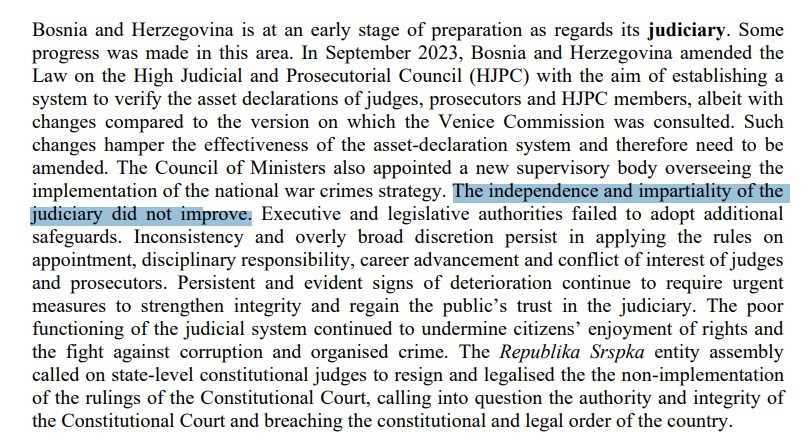
“Nezavisnost i nepristrasnost pravosuđa nije poboljšano”, piše u Izvještaju o napretku BiH.
“Tamno-siva” je i slika borbe protiv korupcije i organiziranog kriminala.
Ako bi se u prostu rečenicu sažimala ocjena Komisije, onda bi najispravnije bilo napisati da je BiH “šuplja kao švicarski sir”.
Nema iskoraka u borbi protiv korupcije, posebno one ‘visoke’, sudski sistem teško pati zbog neprofesionalnosti, političkog utjecaja, nepostojanja kvalitetne razmjene informacija, neujednačene sudske prakse… Na sve to dolazi i eksplicitna ocjena da je policija “podložna utjecaju politike”. A da ne pišemo šta su rekli o zaplijeni imovine saradnji s Eurojustom i Uredom javnog tužioca EU…
“Proaktivan pristup ostaje od suštinskog značaja u borbi protiv infiltracije kiminalnih elemenata u politički, pravni i ekonomski sistem”, piše dalje u Izvještaju.
Entitet Rs posebno je “žigosan” u segmentu slobode medija i prava novinara na neometen rad. I u tom režim Milorada Dodika označen je kao krivac za “nepotrebno kretanje unazad”.
Kada su migracije i migranti u pitanju, Evropska komisija ponovila je i malo pojačala “pozitivnu” ocjenu iz izvještaja od prošle -2022. godine. No, odmah je zatraženo da se poduzmu “hitni” koraci ka jačanju kontrole granice i sistema azila.
Iako ni ocjena u oblasti ekonomskih kriterija nije baš “grdna”, Program ekonomskih reformi BiH je ocijenjen kao i više nego “grdan”.
On “nastavlja biti jadnog kvaliteta i limitira provedbu reformi”, piše u Izvještaju.
Slična je i ocjena u oblasti spremnosti BiH da prihvata pravnu stečevinu EU. To je ogroman set dokumenata pravnih normi Unije i jedan je od ključnih preduslova za pristupanje ovom bloku. Evropska komisija traži bitna poboljšanja procedura javnih nabavki i jako je nezadovoljna aktivnostima BiH za provođenje popisa stanovništva i dobara.
“Ograničeni” ili “nikakav napredak” potom se nižu u cijelom nizu oblasti.
A onda se “poentira” poražavajućom ocjenom da “BiH nije napravila nikakav napredak u obkasti resursa, poljoprivrede i kohezije (poljoprivredni i ruralni razvoj, sigurnost hrane, veterinarstvo i fitosanitarna politika, ribarstvo i vodne površine, te finansijske i budžetske odredbe), gdje su pripreme uglavnom u početnoj fazi”.
Na kraju se “poentira” s korištenjem IPA fondova.
Taj novac koji EU daje državama koje žele u članstvo i dalje se u BiH slabo koristi.

Izvještaj o napretku Bosne i Hercegovine prema Evropskoj uniji u 2023. godini ima čak 142 stranice.
Detaljna “krvna slika” stanja u našoj državi odražava i nadu i frustraciju.
Gledano iz Brisela, oni su uradili maksimum koji su mogli. Pa i više od toga. Iz svojih razloga.
Sada istinski izazov ostaje da vlasti (ali i opozicija) urade svoj dio posla. I tu smo onda u belaju!
Sve ovo, još jednom, pod uslovom da Evropsko vijeće na samitu 14 i 15. decembra odobri dodjelu početka pregovora s EU Bosni i Hercegovini nekada naredne godine, kada se ispune neophodni preduslovi.
Suma sumarum – kada se pogleda sve što se dešavalo i dešava zadnjih dana u Briselu i oko njega, Bosna i Hercegovina je opet nezasluženo “pogurana”. Prema svim relevantnim ocjenama stručnih ljudi, nismo zaslužili ni kandidatski status, a ona nam je odobren u decembru prošle godine.
Sada se kreće prema novom iskoraku dok Holandija, Njemačka, ali i Francuska glasno gunđaju i ponavljaju stav da je od kraja 2022. godine BiH nazadovala, a ne napredovala.
Evropska komisija na to je odgovorila i (neuobičajeno) jasnim imenovanjem nekih od glavnih krivaca.
Pa se entitet Rs na 142 stranice p(r)oziva čak 95 puta, mahom zbog opstrukcija i ometanja evropskog puta BiH.
Time je, faktički, loptica odgovornosti prebačena na Evropsko vijeće koje bi trebalo onda pokrenuti sankcione mehanizme koji uključuju i stavljanje na “crnu listu” Dodika i klike.
Evropska komisija i tu je uradila svoj dio posla obustavivši više od milijardu KM vrijedne projekte.
Dakle, da sumiramo, Brisel je uradio svoje. Iskorak je mnogo veći nego li je prvotno planirano. Sada je do vlasti BiH. Trenutna euforija je više nego neutemeljena! Umjesto slavljeničkih postova na društvenim mrežama vlasti bi se odmah morale latiti posla. Umjesto svađe s novinarima, neka – za početak – riješe pitanje slobodnog putovanja po šest država zapadog Balkana samo s ličnim kartama. Eto, barem to!






























